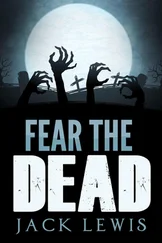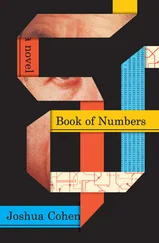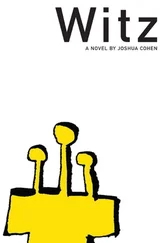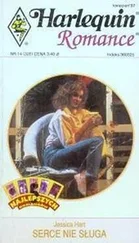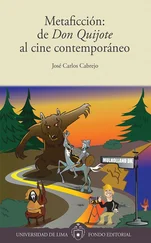Fairies? “You need to move quickly!”
Thou spirits of lilim and such? “Hurry, hurry fast!”
He must build her a bed. He must build her a bed she can give birth in. And it must be built well so that the birth will be well. But he has to do this soon, has to rush.
His ax has a name but no one will know that name. That name is a secret unlike the name of his child that everyone will call him or her, he is expecting a Him. The axname is secret because that is the name he calls when he needs the ax’s power. The ax was smelted especially for his father, with magical powers that his fathers believed in and that he, the child of his father, believes in occasionally. But he also wonders occasionally why an ax should have an axname like a child has a childname but the ax’s name secret, and there is an unease in that wonder that he does not understand fully or want to. (Enough to know that the ax is sharp, though he’s not sharpened it since he was married. Not a whet since he was wed. He has cut hairs with it, though, his, his wife’s, he’s cut with it the throats of hairs and the limbs of wild game and is not worried.)
The seed for the tree came on a whistling wind when God was new or the fathers were gods or when there wasn’t much of a difference between them — it was blown in on the wind and then the wind stopped its whistling and there the seed fell and became planted with the force of its fall and was watered with raining. Weather, nothing more eternal than the weather. The woodsman was not a godtype, he couldn’t have been one even if eternal. He was ugly and fat and short. “O God Above [but this was just a thing he said] I am ugly and fat and short of haft!
“But my ax is strong.”
The tree grew to be an amalgam of trees. A composite of marbled meats thick and dark under a bark. When struck, splintering like a muscle stretched apart. As a tree it was the widest but most stunted like him so he chose it and cut it because it was like cutting himself, which is what a child will do, he will cut you. Imagine you chopped open a tree and inside was a very small tree. That is what it’s like to be human. To be both conscious and conscious of one day not being — and so we seed another.
The tree — which had been rained upon by centuries, its shoot trampled by armies invading and the sport of the hunt, having shaded picnics with Mama and lovers around its expansive trunk graffitied with the endearments of pocketknives and quivering arrows — took only an afternoon in which to fall, after which the woodsman dragged it through the woods under the lush green eyes of its upright fellows, shedding leaves shaped like tears and hearts and leaves back to his hut where he left it in the clearing, just outside the door. He did not go in to greet his wife, the sounds of her shrieking told him she was still alive and had not birthed yet. He did not need to go in, did not need to hear her shriek, already knowing that all would be well, that all would be Male: in the woods he’d buried a hunk of the dung he’d squatted for in the rough hole left by the uprooted tree, in order to propitiate (thank) the forest powers.
And though he did not believe in those woody powers anymore as his father had believed in them, and though he told himself that he often enough did not believe even in God anymore, still he squatted in pressure and heat and left in gratitude what he left — a stillborn blackish coil.
Then he made the bed.
But I should tell this story the way one should tell this story to someone who has never made a bed. When you tell this story to a fellow bedmaker you just say, He made One!
What did he do? he made a bed (not with sheets but with wood and nails), what kind of bed? a big wood bed he nailed — nevermind how, you whose beds at home be unmade, nevermade. Nevermind the chop chopping, the lathe hump of knots to flatness and the plane, the planing. Nevermind those nails, which in days of yore my little squirty grandkids you had to make yourself, not buy, you couldn’t buy them. He made the nails from out of dug earth, fingerdug — but there’d be no need to tell this to a nailmaker. Or to a fellow storyteller. Fill it in yourself.
There, the bed is done.
I will next explain its symbols.
“Please explain …”
To begin with the bed was built and was built plainly given the haste, and babies were birthed upon it, but then over the years in his rare eventide leisure the woodsman would carve into the bed, would make carvings into the footboard of the bed, and into the bed’s headboard too, with that selfsame ax held nearer the blade and then his practiced knife.
On the footboard, the lions he carved represented the strength of lions. The four bedposts he topped with carvings of antlerlike crowns represented authority. Or they might have signified majesty instead, we’re not sure and neither was he, guided by hand and whimsy. Yet again the entirety might only have represented “Representation.”
On the footboard he carved swords and fearsome wings that might’ve been of eagles or ravens if they had to be of something, something flying and not abstract. And he carved lances and bound sheaves of wheat but perhaps it was not wheat because who could grind it? who could grind wood and taste of it and think, wheat? That would be magic! That is the magic of saying This is That, of saying Here is There but it’s not but it is, and that is poetry, which is a kind of art!
The woodsman carved into the footboard’s wood a shield and a helmet and a pike and a mace, he carved a wood wolf, he carved wolves, carved a wooden steer, a stag and lamb, antlers, antlers more and more ornate, a boar, a bear. This was all hopeful, this was wishful, in a sense — this heraldry coming before the family to be heralded was finished. The woodsman, late at night, unprepared for sleep, was inventing the insignia for his family before family he had, because one daughter is not a family and neither are two daughters, but three daughters like in the olden stories, one pretty, one smart, one stupid and plain, are a family and then a son, who ignored the bed because he was too busy building his own life — he was too busy building his own life plainly and then, once finished, decorating it with ornament: with children of his own, grandchildren of his own.
The woodsman’s son never noticed the bed, being too occupied growing his fortune, taking ore from the mine he worked in and piling it up, ore into ingot, into a huge new house with vast windowed rooms and whitewashed cabinetry with a silver filigreed tea set including matching kettle and minuscule handled bathtub for cream and bronzepotted rubberplants that grew to outlandish heights and editions of books in foreign languages that were about sex but served their women readers morals at the end, and he only used his father’s shack as a shed for his wife’s pampered, preciously fed livestock and, subsequently, for his newly acquired telephone the elaborate size of the automobile just then being invented but an ocean away that no auto could cross.
And this son, who worked his way up through the mines from working down in one up to soon managing the one he used to work at, eventually had two sons of his own and the older son one day looked at the headboard of the bed they kept for the family’s babies to sleep in and for the importuning use of visiting relations and guests, in the rarest moment of Sunday repose looking at his grandfather’s carving on the bed’s headboard of a man among trees and saying to himself then aloud and in quotes, “I see a man among the trees. My grandfather carved into this bedhead a scene of himself going out among the trees to cut one down to make of it the bed my father was born in. It is no more difficult than that, yet neither is my life. I have married well a landowner’s daughter and, like my father before me, have worked in a mine and now manage the mine my father managed, my life has been work, not as much work as life had been for my father or grandfather, but it has been a success because of them, their sorrows.”
Читать дальше

